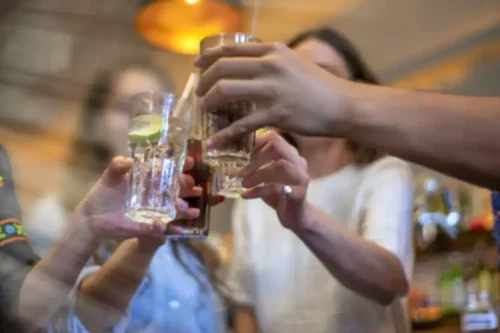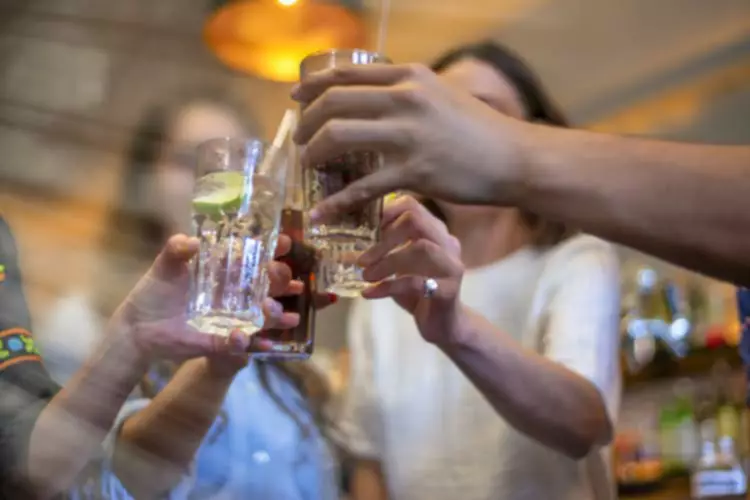
Alcohol is known to have blood-thinning effects, and combining it with medications that also thin the blood, such as anticoagulants, can increase the risk of bleeding complications. You should also closely follow your doctor’s instructions for taking blood thinner medication. The quick answer to this question is yes, alcohol does act as a blood thinner.
- Within the last few years, a new class of blood thinners was developed.
- Binge and heavy drinking may cause a stroke or sudden cardiac death as well.
- The Centers for Disease Control and Prevention (CDC) reports that the health benefits could be related to genetics and not to alcohol consumption at all.
- Many people can recover if they go to a specialized rehab center that uses proven treatments.
- Long-term drinking may lead to various cancers, high blood pressure, stroke, heart disease, digestive problems, or liver disease.
- Learn about the benefits, dosages, and potential side effects of various nootropics to make informed decisions on your journey to peak mental performance.
Common Blood Thinner Medications
Luckily, alcoholics who quit drinking see a reduction in blood pressure. Often those who come to treatment with high blood pressure return to normal levels within a month of not drinking. Alcohol is a legal psychoactive blood thinners and alcohol substance that can be enjoyed responsibly by adults who are of the legal drinking age of 21 or older.
- Certain individuals may develop skin problems like rashes, bruising, and other dermatological issues as a result of blood thinner usage.
- Alcohol may heighten the risk of bleeding by adding its own blood-thinning effect and by irritating the GI tract.
- It can make your blood too thin and lead to hemorrhages, stroke, and if not treated, death.
- Your doctor has prescribed you a very specific amount of medication based on specific factors they found in your blood.
- They can help develop personalized treatment plans, which may include detoxification, therapy, counseling, and support to overcome alcohol addiction.
- Ark Behavioral Health offers 100% confidential substance abuse assessment and treatment placement tailored to your individual needs.
Can genetic differences affect how people respond to Ginkgo and warfarin together?
However, if bleeding tendencies remain or alternative antithrombotic agents are still in use, reintroducing Ginkgo biloba requires caution. While Ginkgo biloba and blood thinners like warfarin can have synergistic effects, separating them in time doesn’t always eliminate risk. Consulting a specialist in integrative or geriatric medicine may provide nuanced guidance based on evolving health status.

Common Blood Thinners
Your doctor can help determine the cause of the bleeding and provide appropriate treatment. Alcohol depresses your central nervous system (CNS), and the “buzz” you feel is the neurons in your brain and spine which aren’t firing as quickly as they would like to be. It gets absorbed into your bloodstream, and your liver must do the hard work of filtering it out. It depends on a few factors, like how long and how much you drink, your health, and the quality of your diet. This literature review is the foundation of the current alcohol consumption guidelines.
The interaction between alcohol, medications, and certain health conditions can further complicate the effects of alcohol on blood thinning. For instance, individuals taking medications such as warfarin or aspirin, which are known to affect blood clotting, should be cautious when consuming alcohol. Alcohol can interfere with the effectiveness of these medications or potentiate their effects, increasing the risk of bleeding or other complications. Some studies suggest that moderate alcohol consumption may have a mild anticoagulant effect.

How Much Alcohol Is Needed To Affect Blood Pressure?
- For some people, the effects of alcohol on the blood clotting process may be more pronounced and may last longer than others.
- Effient is an antiplatelet drug often used to lower clot risk after certain cardiac procedures.
- These drugs play a crucial role in managing conditions related to blood clotting and circulation.
However, this exact mechanism may increase your risk of bleeding from strokes. The effects of alcohol consumption on blood pressure and heart rate can last up to 13 hours after drinking, and its effects on heart rate can last up to 24 hours after drinking. Short-term effects occur because of how alcohol impacts receptors in the blood. Specific blood vessels near the heart rely on receptors to keep blood pressure at a healthy level. When alcohol is in the blood, these receptors do not heroin addiction function as they should. Short- and long-term alcohol use has different effects on the blood.
Is red wine good for your heart?
The long-term co-use of Ginkgo and warfarin remains an area of active investigation. Current trends in integrative medicine suggest increasing interest in harmonizing herbal and pharmaceutical treatments, but this must be grounded in science, not assumption. As more is learned about how Ginkgo biloba and blood thinners interact over time, guidelines may become more refined and personalized. For now, long-term use of both should be accompanied by frequent INR checks, transparent patient-doctor communication, and thorough documentation of supplement use.

Health Conditions
They may also suggest switching to a different type of medication if necessary so that you can continue drinking in moderation. The net effect is that drinking alcohol increases the risk of bleeding and makes it more difficult for your body to stop bleeding when you experience an injury. It acts as an anticoagulant by decreasing blood thickness and affecting your body’s ability to form blood clots. So when considering drinking alcohol while on blood thinners, taking specific steps under medical supervision can contribute to a safer and more controlled approach. Your healthcare provider also prescribes you the correct dosage for you depending on a number of factors.
Anticoagulants (warfarin, heparin and a newer class of drugs called direct oral anticoagulants) work by interfering with proteins involved in the clotting process. Doctors prescribe them to dissolve or prevent large clots, Ko says. Someone who has a higher risk of blood clots due to another health condition, such as atrial fibrillation, may be prescribed an anticoagulant. When you consume alcohol, it can reduce the stickiness of platelets, which helps keep blood flowing smoothly. In moderate amounts, some people believe alcohol may even confer minimal heart-health benefits.
